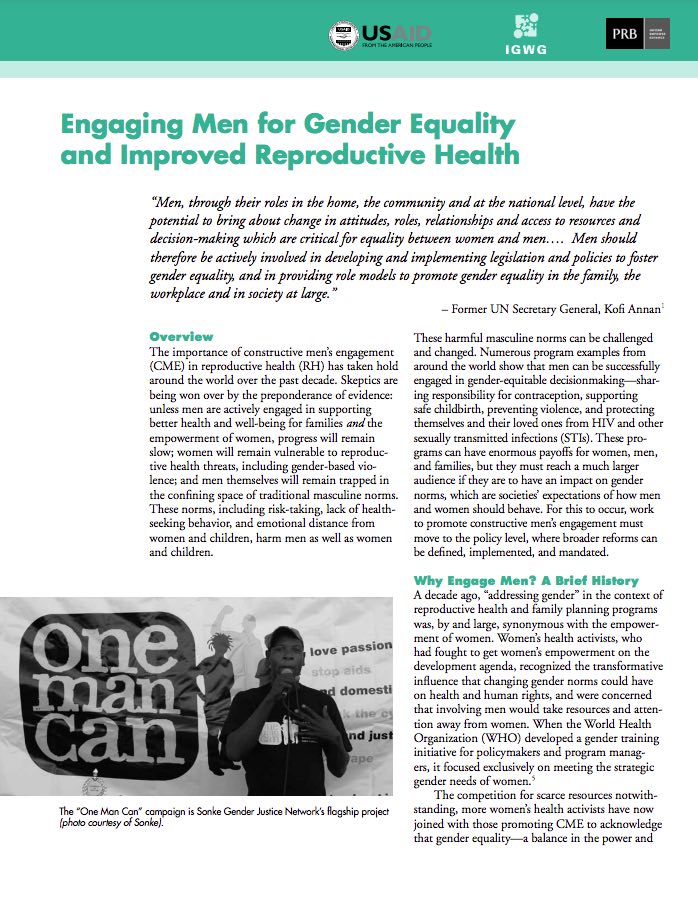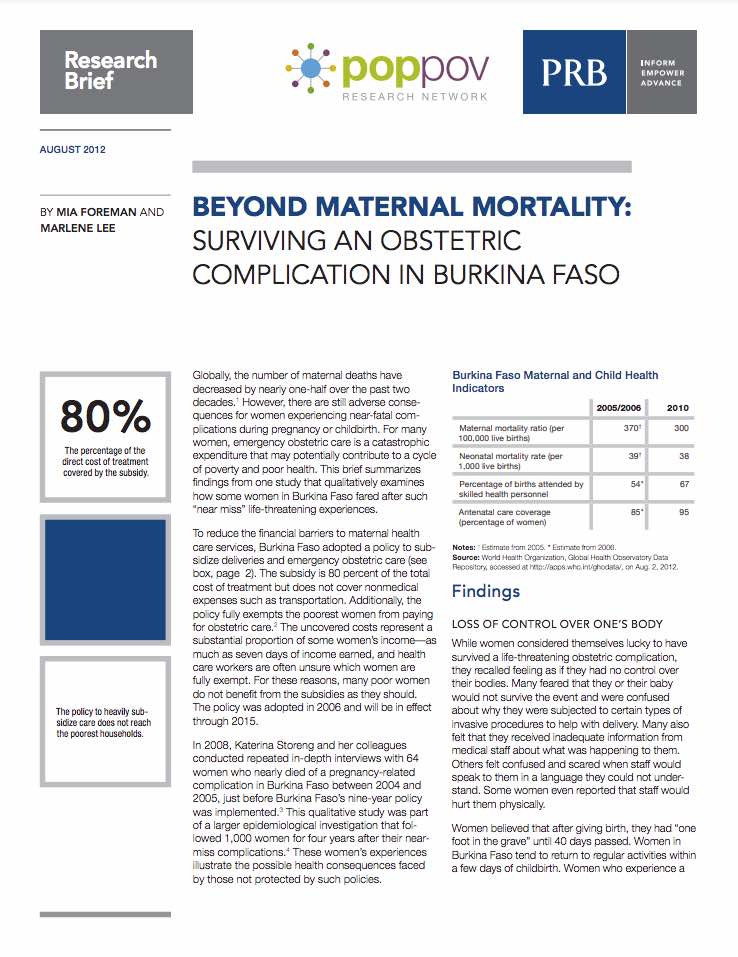Are the 58 Million Girls Who Married Early Overlooked by Policies and Programs?
(2011) Despite the recent attention to ending early marriage around the world, married adolescents remain invisible to many policymakers and program developers.
(2011) Despite the recent attention to ending early marriage around the world, married adolescents remain invisible to many policymakers and program developers.

(2010) The importance of constructive men's engagement in reproductive health has taken hold around the world over the past decade.
(2012) Policymakers, researchers, and other stakeholders optimistically discuss the demographic dividend.
(2008) Fertility has declined significantly throughout the developing world, and in Latin America total fertility rates (TFRs) have declined by 50 percent over the last three decades, from 5.0 births per woman in 1970 to only 2.5 today.1

Project: Population and Poverty (PopPov) Research Network
(2012) Globally, the number of maternal deaths have decreased by nearly one-half over the past two decades. However, there are still adverse consequences for women experiencing near-fatal complications during pregnancy or childbirth.
Project: IDEA: Informing Decisionmakers to Act
Family planning is widely recognized as one of the most cost-effective health interventions.

Project: Empowering Evidence-Driven Advocacy
More than one-quarter of married women in Uganda would like to delay or prevent pregnancy but are not using family planning.